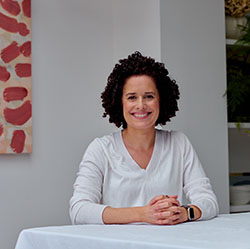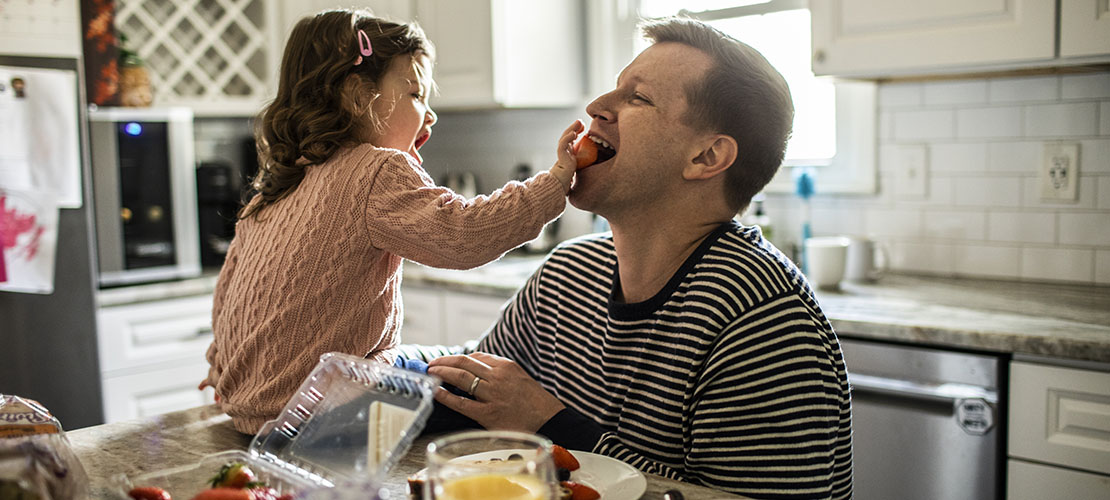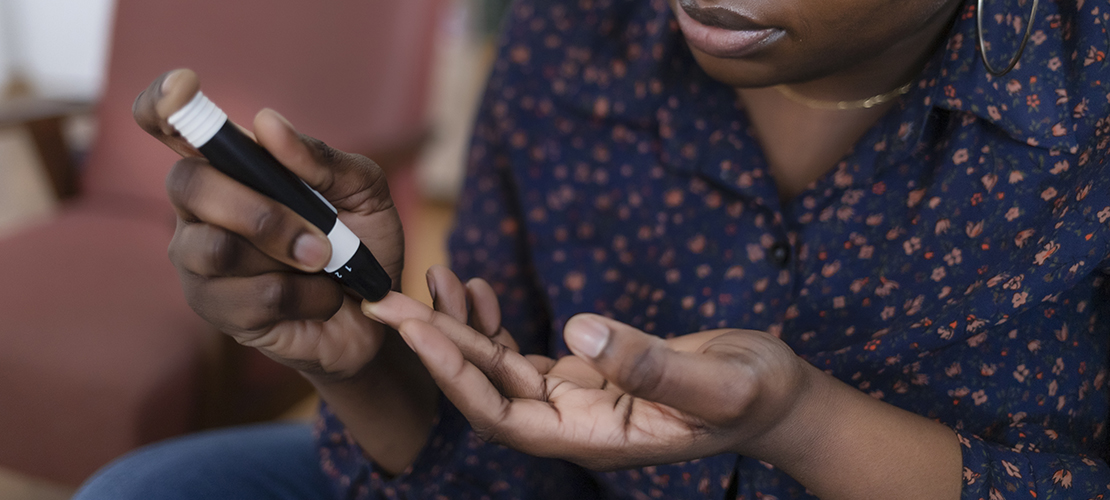 (1).jpg?language_id=1)
Lots of factors influence how our bodies process and respond to food. These include genetics, our food preferences and lifestyle choices. Thanks to research, it’s becoming clear that a one-size-fits-all approach to dietary advice doesn’t work for everyone.
Professor Sarah Berry is a nutritional scientist at King’s College London and Chief Scientist at ZOE, the research-led science and nutrition company. She also leads nutritional research for the PREDICT programme, the world's largest study of diet and lifestyle.
Sarah talks to us about why individual differences matter and how digital technology is shaping the future of dietary advice.
How is research on personalised nutrition changing dietary advice?
Traditional dietary advice tends to give general guidelines that apply to everyone, but only 0.1% of people follow the core guidelines. My research explores how to personalise dietary advice so people can receive more tailored advice that is easier to follow.
While messages like "eat five a day" are a great starting point, they don’t consider unique differences in biology, lifestyle or preferences.
Dietary advice based on age or sex already exists, so we're taking that further by looking at what works best for individuals. We're looking at factors like how much people exercise, their general health, food preferences, and their body’s response to food.
Everybody is different, so it’s all about making dietary advice more practical so people can maximise the healthfulness of their diet.
What have been your biggest eureka moments as a nutrition researcher?
Through the PREDICT programme, we’re analysing the impact of food on health at a population scale that we’ve never seen before, and it's game-changing.
We're learning that how we eat matters nearly as much as what we eat. Things like when we eat, how fast we eat, and how much we sleep all play a huge role in how food impacts our health. We can’t simply think about food or nutrients in isolation – we need to look at lifestyle as a whole.
One of my favourite findings is that the speed in which you eat your food can impact your metabolic health. Other researchers have shown that by reducing the speed you eat by 20%, you can reduce your calorie intake by 15%. This is because eating slowly allows your body more time to recognise that you’re full, which prevents overeating. This is such an easy change that can make a real difference.
How is public participation transforming nutrition research?
The ZOE platform is showing us the incredible power of community participation in research. The data people contribute has allowed us to make some big breakthroughs. ZOE was formed in 2017, and running the COVID-19 Symptom Study propelled us to becoming a household name. This study showed just how interested and motivated people are to take part in research. It led to new discoveries - like the official recognition of loss of smell as a COVID-19 symptom.
Thanks to digital technology, research is becoming two-way and more accessible than ever before. This means as scientists we can give something back.
By taking part from their own homes, people don't just help science progress, they also learn a lot about their own health.
This is so important when we’re researching something as diverse as diet.
What advancements in research will have the biggest impact on how we eat in the next decade?
I think the biggest shifts will be in how we conduct research and what this means for dietary advice. What we see in a lab doesn’t always translate to real life. It’s only through large studies with engaged participants that we can make real-life and widely usable discoveries.
Since we know that everyone responds differently to food, we need a wide range of people involved to make sure our findings are meaningful. Smartphone apps and community participation allow us to gather data on this massive scale.
So, by taking part in research, people are becoming citizen scientists, helping us shape the future of nutrition and health. Without them, this research simply wouldn’t be possible.
How you can get involved with research
Be Part of Research makes it easier than ever to find and take part in suitable health and care research.
Simply sign up online to be contacted about opportunities to take part in studies that match your interests - including dietary research.
Join a health and care study about eating well
You can also take part in vital health research looking at how diet and lifestyle impact different types of health conditions. Use our study search tool to find a study that interests you.
A number of nutrition and diet studies are currently looking for volunteers, including:
- The Eating Disorders Genetics Initiative
- How overeating carbohydrates and fats affects metabolism
- Traditional diet versus Mediterranean diet in Irritable Bowel Syndrome
- Supporting children and young people to live well with coeliac disease
And if taking part in a study doesn’t feel right at the moment there are other ways to get involved in research.








